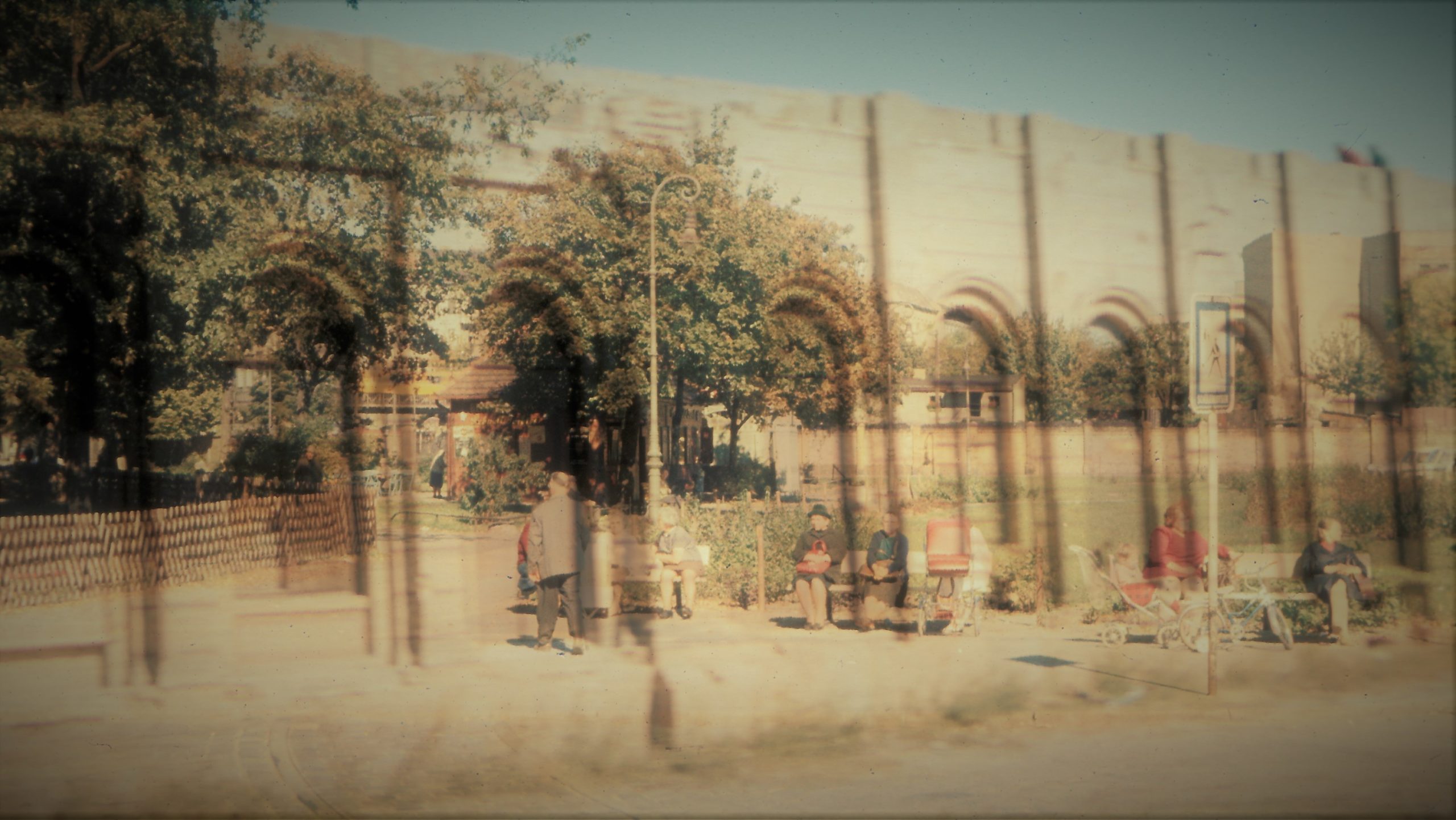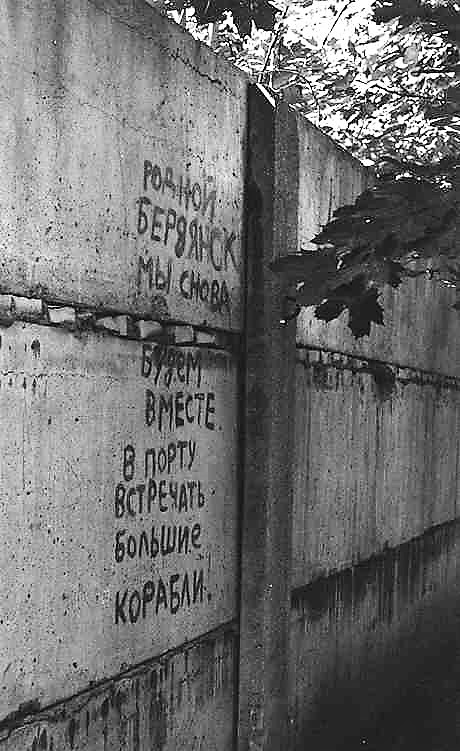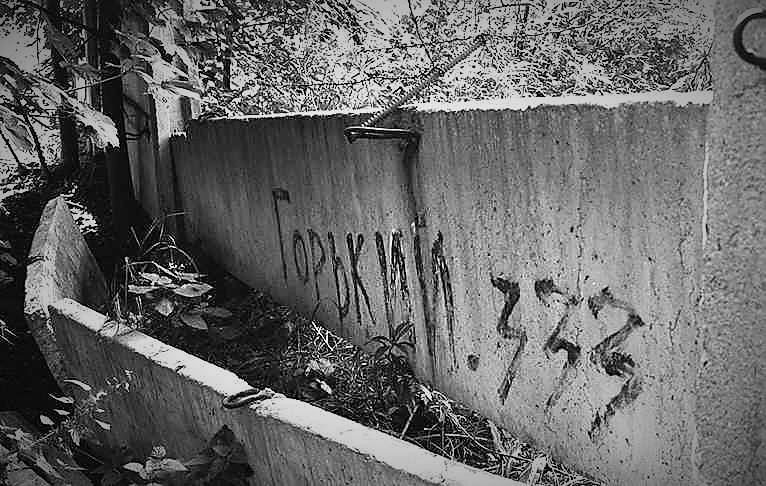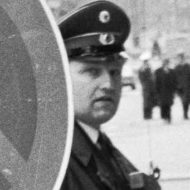by R. W. Rynerson
“Und trãnen sind all ihr Gewinnen” says the lyrics in Beethoven’s wistful Opus 98, An die ferne Geliebte. I came to know how the great composer felt.
One day in August 1971 I was living in the film noir divided city, Berlin. Next day I was hassling with petty corruption in Fort Dix, New Jersey. I wondered at the changes that had taken place in the U.S. in the 27 months that I had been overseas. I wondered whether I would ever return to Berlin. A few more days and I was walking down the platform at Portland Union Station towards my family.
“Congratulations!” My father had been reading the minor news stories about the Four Power negotiations in Berlin. “You won your war and the diplomats signed the peace treaty.” Actually, they had just initialed it, but it was a satisfying conclusion. Only years later I learned that my being sent to Berlin instead of Vietnam was a part of that diplomatic process.
“Don’t keep looking in the rear-view mirror. You’re making me nervous,” my boss said. I was steering a Salem Motor Pool car through mellow Oregon 1972 traffic, but a part of me was still on watch.
“You’re off in Berlin again,” my wife observed. We had not been married long before she noticed that I was daydreaming.
Then I experienced the most vivid dream I had ever had. Somehow I had ended up on the wrong side of the Wall (which was possible in some locations) and woke up expecting to be shot. And with that, Berlin receded in my thoughts for a long time. Until November 1989.
Of course, I followed the news intensely as first the Wall, and then the Soviet Empire, were dismantled by the people they were meant to contain. I wrote the first drafts of articles which formed the initial contents for this website. And then I had a second dream of the Wall that book-ended the first.
Children were playing near where the Wall had been and it was puzzling to see them unconcerned by its absence. I walked over and crossed the border that was invisible, as it had been in 1945. No one yelled at me or shot at me. I started to explore the East and felt a weight lifted that I had not known I was bearing.

By the time that life permitted a reunion trip to Berlin in 2002, much had changed. The Soviet Army that we had watched so closely had gone home; we supposed that they were turning their talents toward building up their own country.
In that first reunion and in subsequent visits through 2018, I became aware of the tears that were being held back. No one had a monopoly on softly expressed sorrow.
In my 2002 visit I made my way through the brush surrounding the former Soviet kaserne that had replaced a Wehrmacht kaserne that had replaced a Prussian caserne in Potsdam. From a distance we had watched the soldiers there, but could not see their homesickness.


Merle Haggard was more specific in 1969 but found that ‘Rhine’ fit the rhyme and ‘Spree’ did not, so a British Tommie’s farewell in his country song was geographically challenged.
Tommies, GI’s or their friends were not the only people left with quiet tears from their experiences in Cold War Berlin. In 1997 documentarian Daniel Eisenberg wrote:
While filming at the Stasi headquarters, I observed this man sitting motionless at a table, listening to a tape and silently crying. The tape looped over and over, filling the room with the voice of Erich Mielke, the former chief officer at the Stasi. Mielke was in prison at the time, being held on charges of conspiracy against the police in the 1930’s.
Who was this man at the table? A Stasi officer himself, only a few months earlier powerful and feared, and now an outcast? Or a victim of the Stasi, someone who had been sent away for years for an invented crime? Sometime later the man approached me and spoke into my ear. He reeked of vodka. In a strong accent, he said “Keine ist ünschuldig” (No one is innocent), and then continued toward the door.
As published in Grand Street; Vol. 18, No. 1 – Summer 1999.
I found myself at dinner with a friend from the world of “stage and screen” — who had begun her career under the constant monitoring system of the German Democratic Republic. She was telling me about her work and suddenly she interrupted herself with tears.
“You should know,” she composed herself to say, “that for us the war did not end in 1945, but in 1989.” I wondered on this occasion and on others whether it was right to show up and pry open people’s memories. Just buying coffee, more than once my status as a veteran of Berlin Brigade, without any discussion, brought unexpected tears to a Berliner caught off guard.
On the other hand,
“Isaac the Syrian said, ‘Tears mark the boundary between the bodily and the spiritual state….The fruits of the inner self begin only with the shedding of tears. When you reach this place of tears, then know that your spirit has come out from the prison of this world, and has set its foot on the path that leads to the new age.'”
Quoted by Amy Frykholm from Holy Tears; Princeton University Press; 2005.
As I mentioned in the beginning, in 1971 when my plane rose from the field at Tempelhof I wondered if I would ever return. The future was full of possibilities and there were many places that would be interesting to visit. When at last I had the opportunity to return in 2002, my sister suggested that I spend extra time in Berlin, rather than touring. She had noticed my continued interest in the city. Her advice made sense and I found friendly faces, help with the research on which this website is based, and importantly, people willing to skirt the edge of tears to share their stories. On each trip since there was a feeling that it would be the last — and then I would remember something left unfinished — as if something of mine was left behind — waiting for just one more voyage of discovery.
We should close with the voice of a woman whose tangled connections with Berlin were more complex than any veteran of Berlin Brigade.
Return to

